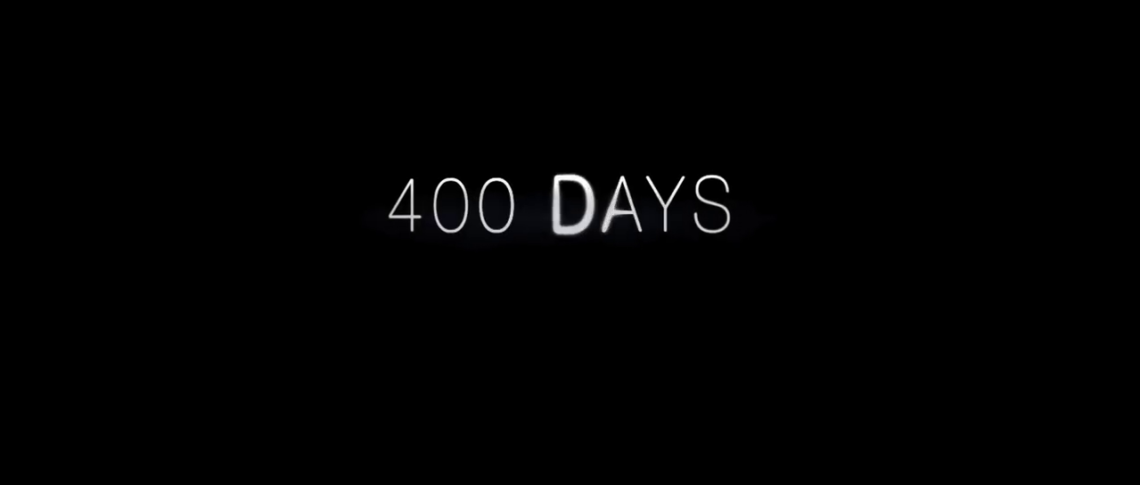-
#555 – 400 Days (2015)

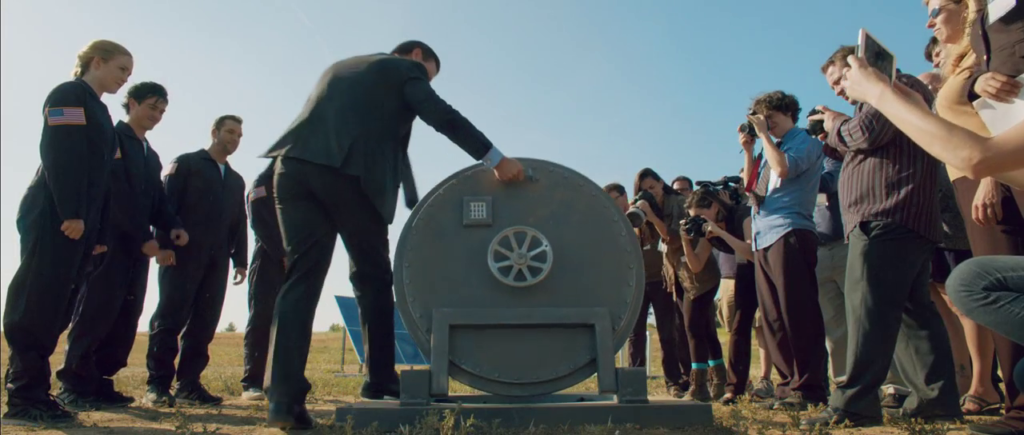

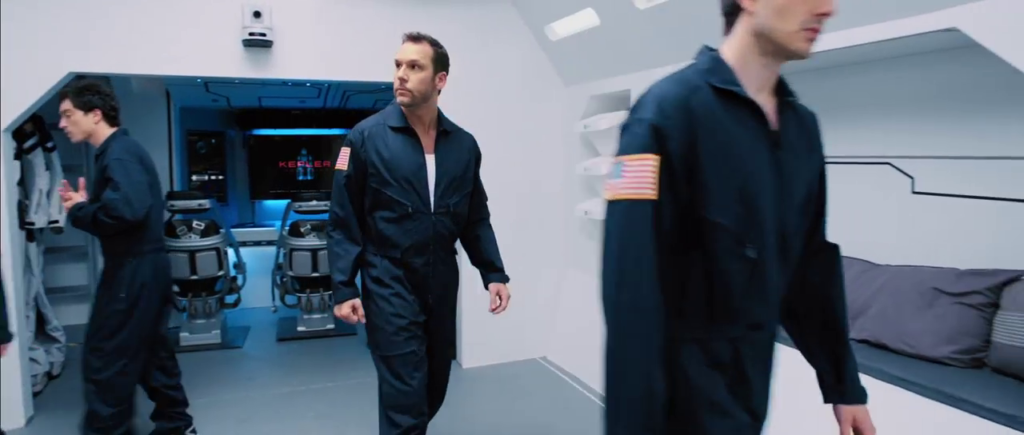
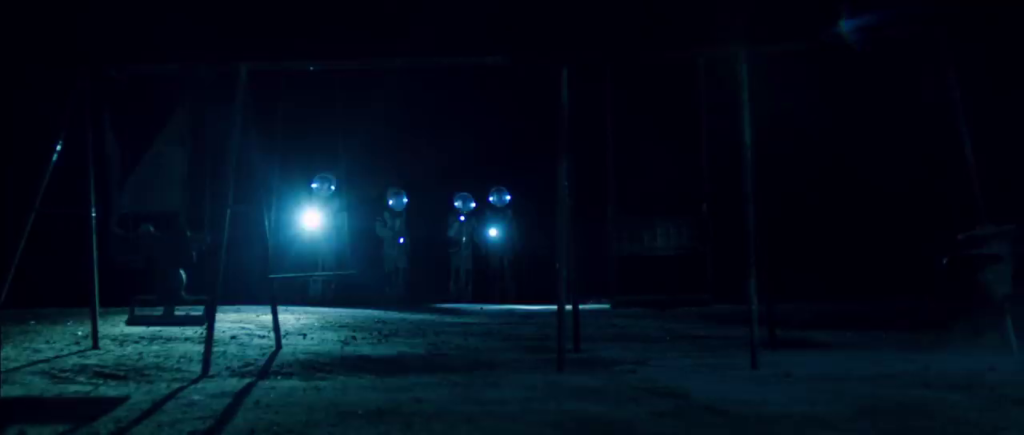

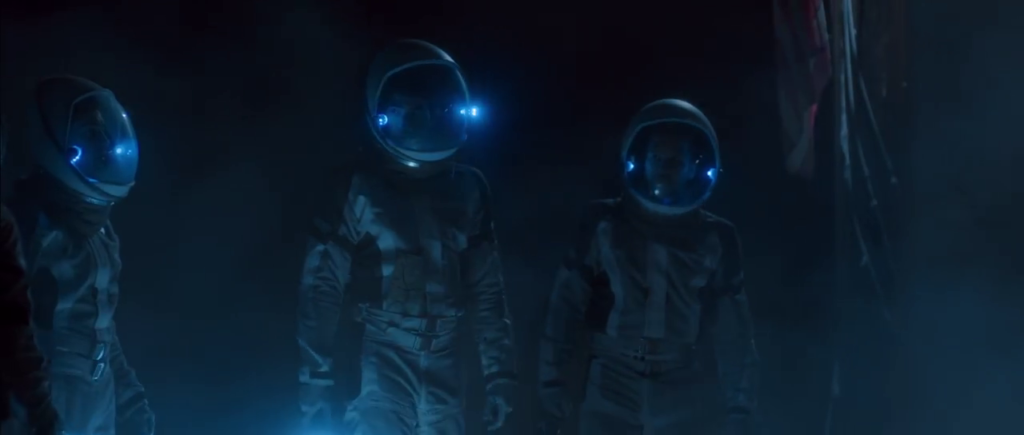


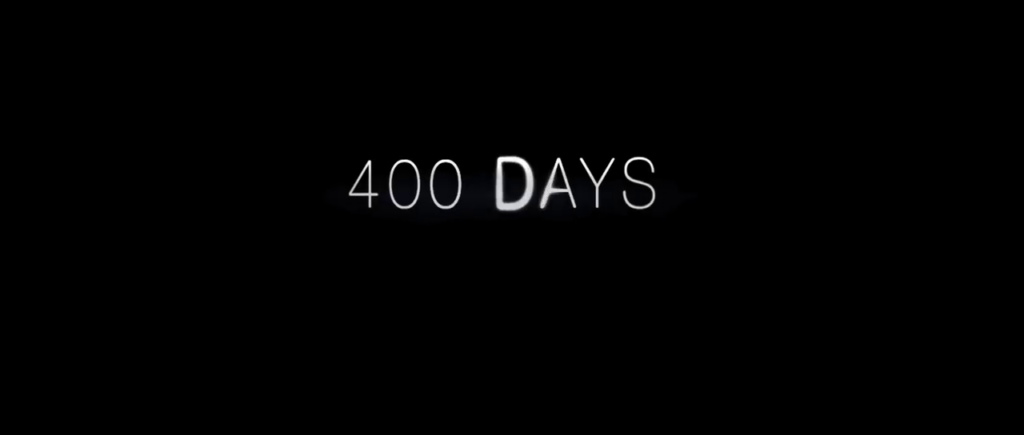
400 Days (2015)
Film review #555
Director: Matt Osterman
SYNOPSIS: Four astronauts are chosen to undertake a psychological experiment to survive 400 days on a simulated space journey to another planet, undertaken in an underground bunker. As the crew loses contact with the outside world and the long journey takes its toll, the crew emerge into a changed world, and the distinction between what is a simulation and what isn’t begins to blur…
THOUGHTS/ANALYSIS: 400 Days is a 2016 science-fiction film. The plot revolves around four astronauts who are chosen to undertake a simulated mission to another planet for 400 days in an underground bunker. As the mission progresses, they are expected to deal with the psychological challenges and unexpected issues that arise. However, as the mission nears completion, the crew start to feel like something is amiss, and leave the bunker into a completely different world, and the question of what is a simulation and what isn’t becomes increasingly prevalent. The film is a suspense/thriller film, but there is nothing really suspenseful or thrilling about any of it. Firstly, we hardly see any of the 400 day journey, apart from the beginning and a scene about halfway through, so we don’t really get a sense in the change of the character’s psychological state and how they are faring. Even when the characters emerge from the bunker into a strange new world, there’s not much more that’s added to the suspense and mystery. Any actual suspense is completely ruined by any jumpscares being telegraphed a mile off, with the pre-silence before a sting being so completely obvious you’ll know what is coming. Coupled with the cliché dialogue, there’s little to immerse you in the environment that the film creates.
The first thing you’ll notice about the characters is that none of them seem to be the type of people you would expect to be astronauts: their dialogue, on top of being cliché as mentioned, just seems uninterested and almost naïve: they definitely don’t seem to be the type of people you would lock together in a confined space for four hundred days. The acting isn’t bad. but the actors really aren’t given much material to work with. There’s a typical romance subplot that doesn’t really add anything, and the conflict that is generated between the crewmembers is ineffectual, and dissipates fairly quickly.
The film almost completely different during the second act: the crew emerge from the bunker after their 400 days to find that apparently the world has been plunged into darkness because the moon exploded and all the debris fell to earth causing some ecological apocalypse or something. Wandering around in a now b-movie plot, the crew stumble upon a town of survivors who all seem a bit mad, but the film just decides to constantly cast doubts on whether what they are experiencing is real, or just another part of the simulation, or it’s all in the astronauts imagination, which maybe was caused by the injections the medic was giving them under the guise of immunisation boosters? The film just throws more and more questions and points that contradict one another, but does it in such a haphazard way that you can’t really form a coherent opinion on what you think is happening. The whole idea that the moon exploded for some reason and somehow all the moon dust fell to Earth and destroyed everything is pretty farfetched, but a lot of the film feels unbelievable anyway, from the corny dialogue to the seemingly inept characters.
The worst part of the film is most certainly the ending: you probably know what is going to happen, as the crew are congratulated on surviving the simulation apparently, and just before they leave the bunker, the film snaps to black and the credits roll, leaving the question of what actually happened up for interpretation. However, this only works in films if what is up to interpretation is constructed properly, so you can somewhat imagine what has happened based on what you have experienced. This film throws out so much smoke and contradictions that it is almost impossible to imagine what happens next. The different possibilities have to be believable or derived from what the film gives you, but there’s just none of that here. The issue is definitely not the low budget either, it’s definitely a case of overwriting an idea and running away with it. Overall, 400 days is a bit of a mess, and undermines itself as a thriller, and falls short of being credible science-fiction. If you want a space-based psychological film, you can watch Solaris, and if you want a sense of mystery that gives you space to interpret the message, you can watch Inception.
